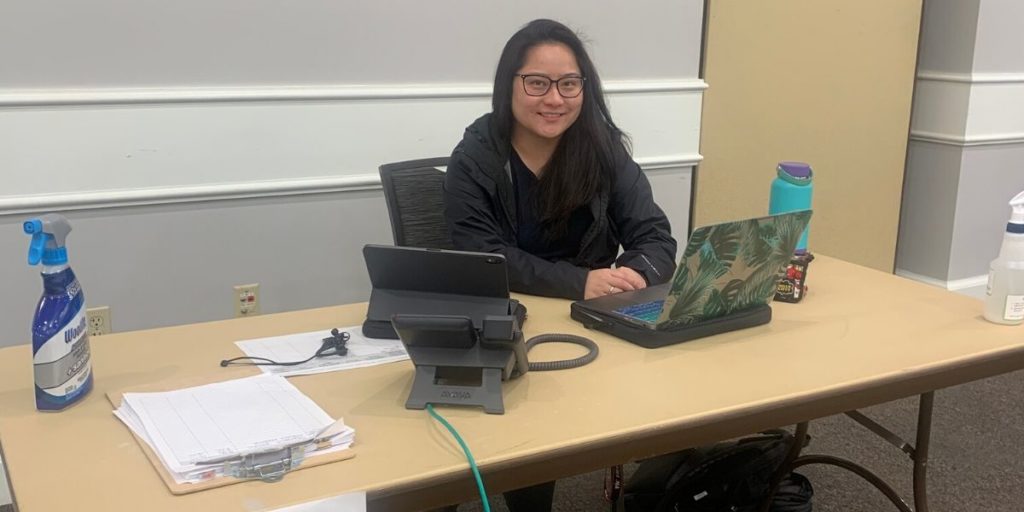
When OSU’s TRACE-COVID-19 study was preparing to launch, the research team and its community partners knew they needed to be able to respond to questions and concerns from study participants and the public. A call center was needed, but how could one be created in such a short time?
CPHHS Dean F. Javier Nieto, a lead investigator on the project, got busy and worked with the OSU Foundation to secure phones, and the OSU Alumni Association offered a space where the phones could be safely distanced. He then recruited Allison Myers, director of the Oregon State University Center for Health Innovation (OCHI), to lead the call center management on a Tuesday. The following Monday, the center was open for calls.
“I have been training public health practitioners for many years, but this is my first call center,” Allison says. “Our strong partnership with the Benton County Health Department meant that we could ask lots of questions, and we could mirror much of their implementation. But I needed to act fast to recruit students, schedule and train them.”
The two-hour training took place via Zoom in two parts. The first focused on the logistics of getting into the CH2M HILL Alumni Center, where the call center would be housed, and using a phone system, all with proper sanitization procedures. The second half focused on the study itself, including how and why it’s being implemented, and the best responses for questions they might receive.
“Because the main goal of the call center is to serve as a place for folks to call with questions, our first response is a listening ear,” says Allison, who works at the center three or four days each week.
Other supervisors include Dean Nieto; Oralia Mendez, coordinator of the college’s Community Health Worker Training Program; Associate Professor of Practice Marion Ceraso, and students Marissa Song Mayeda and Claire Torkelson. The dean and Marion staff a Spanish-speaking desk on weekends, along with undergraduate public health student Samantha King and others.
Marissa, an MPH/MPP student focused on health practice and policy who plans to graduate this spring and apply to medical school, was asked to join because of her role as a graduate research assistant in OCHI. She immediately said yes.
“I really wanted to do my part in the COVID-19 response,” says Marissa, a site supervisor who works roughly 20 hours each week at the center, answering calls from the public and directing them to resources. “We learn so much in the classroom, but being able to see public health in action has been quite an enjoyable experience. It is nice to be able to engage with fellow students and community members. “
Stephanie Hasan, who is double-majoring in human development and family sciences and elementary education, agrees. “I wanted to volunteer to be part of this project because I think that community efforts, such as the TRACE study, have the potential to save lives. It means so much to be able to be a part of this effort. I was moved to volunteer at the call center, as it was a simple way in which I could support the community.”
Stephanie, who works about seven hours each week, says she’s “amazed” by the community’s response. “In the near future, I hope to continue to be part of community efforts like this one. I hope to use my strengths and abilities to collaborate with others and ultimately help those who are in need.”